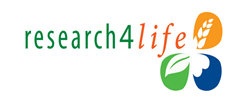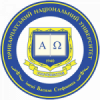Educational Dialogue: Several Aspects of Enhancing Preservice Teachers’ Reflective and Proactive Readiness for Teaching Practice
DOI:
https://doi.org/10.15330/jpnu.11.1.59-71Keywords:
training of prospective teachers, educational dialogue, dialogic communication, reflective and proactive teachers’ readinessAbstract
The article focuses on numerous theoretical elements aimed at developing reflective and proactive preparedness among university students from the Faculty of Pedagogy. This preparation is essential for effectively engaging in educational dialogue with students during practical experiences in schools. Based on the findings of theoretical and empirical research spanning several years, the author highlights the teacher’s pivotal role as a facilitator in the school educational process. This facilitation is emphasized particularly during dialogue interactions, where the foundation is built upon principles of humanity, tolerance, and acknowledgment of the diverse perspectives of all participants. The applied aspect of professional training of prospective teachers in the organisation of dialogue-based learning is outlined. The necessity of implementing the proposed educational and methodological tools (Socratic dialogue, workshops, training technology, discussion, group work, projects, inquiry-based learning, etc.) in the professional training of future teachers to increase their readiness to organise a classroom dialogue is substantiated. The paper describes the outcomes of experimental research evaluating the efficacy of cultivating reflective and active preparedness in students for pedagogical interaction, specifically focusing on dialogic learning. The investigation spanned from 2017 to 2022 and involved 601 prospective teachers from Ukrainian universities. The researcher used the “Readiness to Organize Dialogic Learning at School” methodology to assess the levels of reflective and active readiness among prospective teachers in organizing educational dialogue. This assessment included evaluating skills such as self-knowledge, self-study of communication abilities, and the capacity to establish subject-subject interaction, among others. The research has unveiled the degree of reflective and active preparedness among prospective teachers for organizing educational dialogues within the framework of their professional training during the summative and formative experiment stages. The comprehensive analysis, both qualitative and quantitative, is presented to compare the obtained data. The following research methods were used: subject-target method, empirical methods (questionnaire, testing, pedagogical observation, comparison, pedagogical experiment) and methods of mathematical statistics.The author’s materials from the dissertation “Preparation of primary school teachers for the organization of dialogic training” for PhD (K. Fomin, 2020) are partially used in the article.










